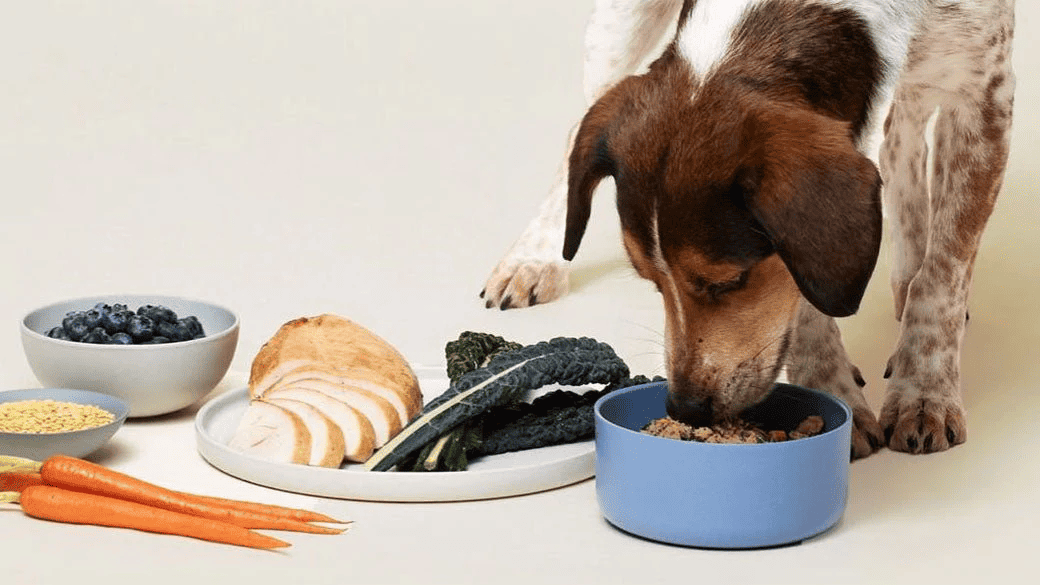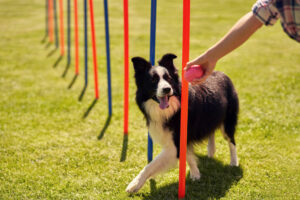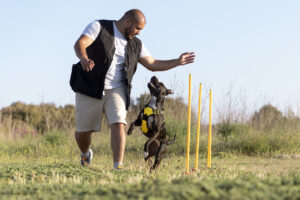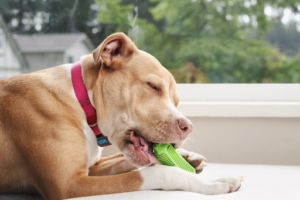It’s important to note that not all human foods are safe for dogs, and that certain foods that are beneficial for dogs should still only be fed in moderation. It’s always recommended to check with your vet before making any significant changes to your pet’s diet. Also, some dogs have specific dietary needs based on their size, age, breed, and health status.
That being said, here are Top Dog Fitness Foods generally accepted as beneficial for dog’s health:
- Lean Meats: Protein is the cornerstone of a healthy canine diet. It’s essential for their growth, maintenance of muscle mass, and overall health. Good sources of lean meat for dogs include chicken, turkey, lean ground beef, and fish like salmon which also offers beneficial omega-3 fatty acids. Always cook meats thoroughly and avoid seasonings.
- Sweet Potatoes: Sweet potatoes are a great source of dietary fiber, which aids in digestion, as well as vitamins A, B6, and C. They’re also rich in beta-carotene, which can contribute to your pet’s eye health. Be sure to cook sweet potatoes thoroughly and serve them in small, manageable portions.
- Blueberries: This superfood is packed with antioxidants, fiber, and vitamins C and K. They’re a healthy treat option for dogs and can be given either fresh or frozen. However, they should be given in moderation due to their sugar content.
- Carrots: Carrots are a good source of vitamins A and K, as well as fiber. They can be fed to dogs either raw or cooked, and can also serve as a healthy chew treat, promoting good dental health.
- Green Beans: These are low in calories and high in iron and vitamins. They can be a great choice for dogs that are overweight or prone to weight gain. They can be served to dogs cooked or raw, but it’s usually best to cook them without any added salt or seasonings.
Remember, even foods that promote Dog Fitness and well-being for dogs. It should be introduced gradually and fed in moderation. If your pet has any negative reactions to a new food, such as vomiting, diarrhea, or changes in behavior, it’s important to contact your vet right away.
Read Our Other Blog Also: How To Optimize Your Pet’s Living Space







